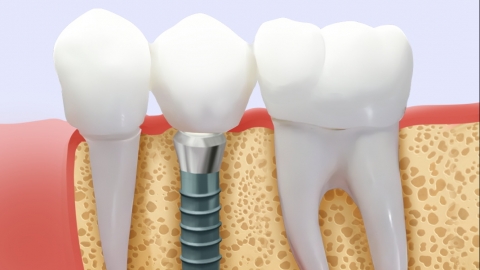What is an implant?
Generally, an implant is an artificial tooth root implanted into the bone tissue of the human body. It serves to support and fix the upper dental restoration, providing a foundation for the repair of missing teeth. A detailed explanation is as follows:

Implants are typically made from materials with excellent biocompatibility, such as titanium and titanium alloys. During dental implant surgery, the dentist implants the implant into the alveolar bone at the site of the missing tooth. The shape of the implant is designed according to the anatomical structure of the alveolar bone, and its surface is specially treated—for example, through sandblasting or acid etching—to enable the implant to bond more effectively with the bone tissue. This osseointegration is key to the success of the implant and provides stable retention for it. As the bone tissue grows on the surface of the implant, the implant gradually becomes part of the alveolar bone, just like a natural tooth root. Afterwards, components such as an abutment and crown are installed onto the implant, restoring the appearance and function of the tooth.
Maintaining good oral hygiene is important in daily life. Suitable mouthwash should be used to keep the mouth clean. After the wound has healed, correct brushing techniques should be used, brushing teeth at least twice daily, combined with flossing, to avoid accumulation of food debris around the implant and prevent the occurrence of peri-implantitis.





